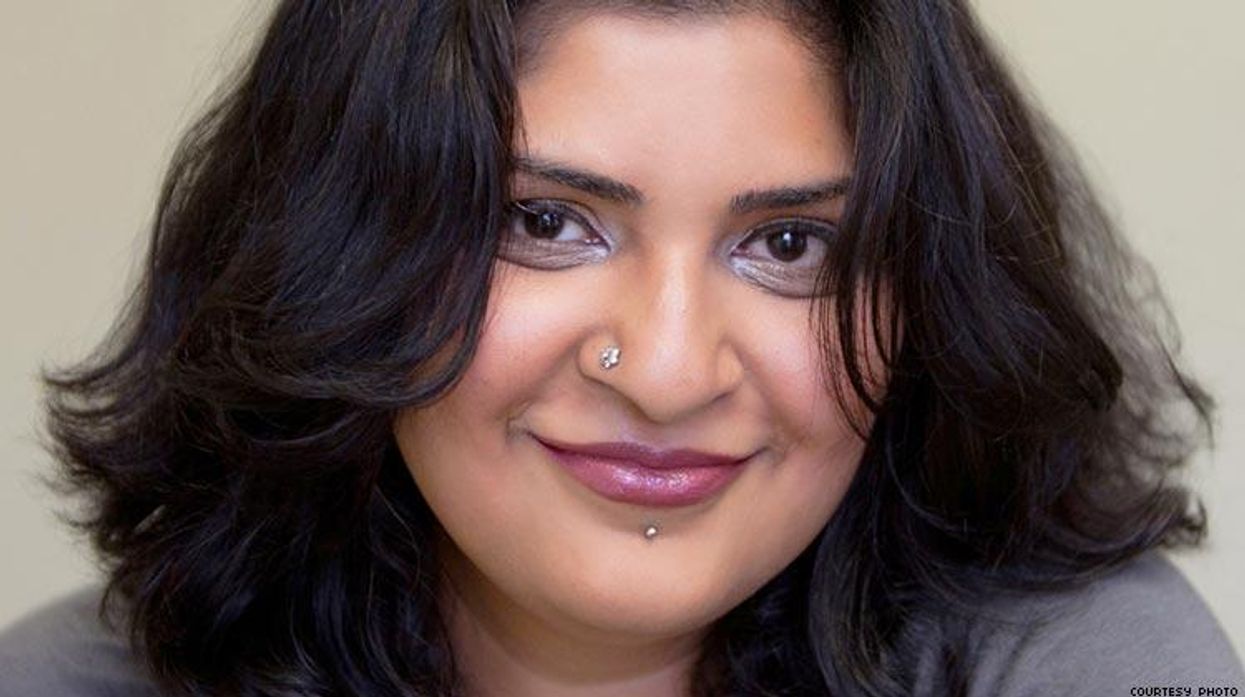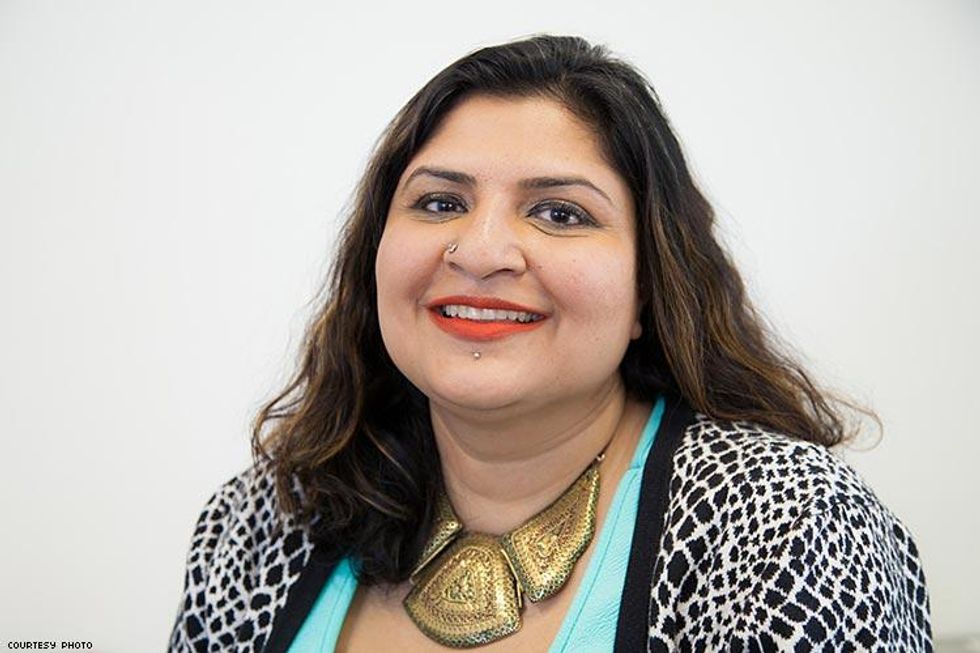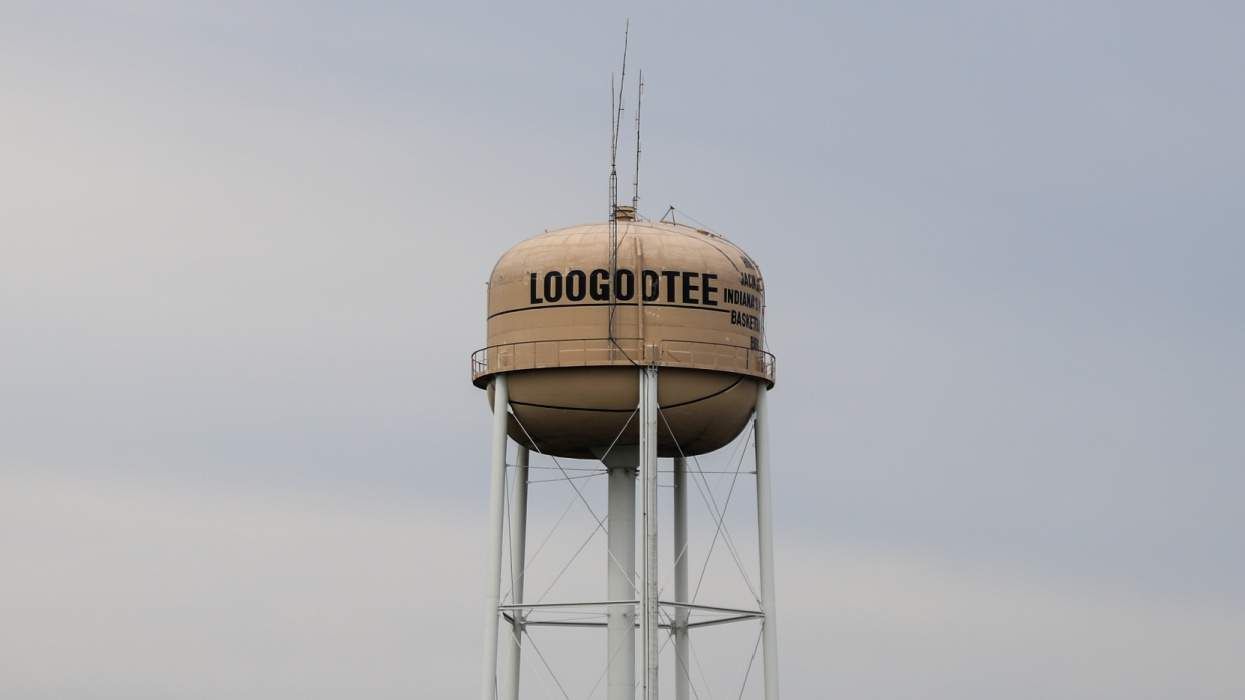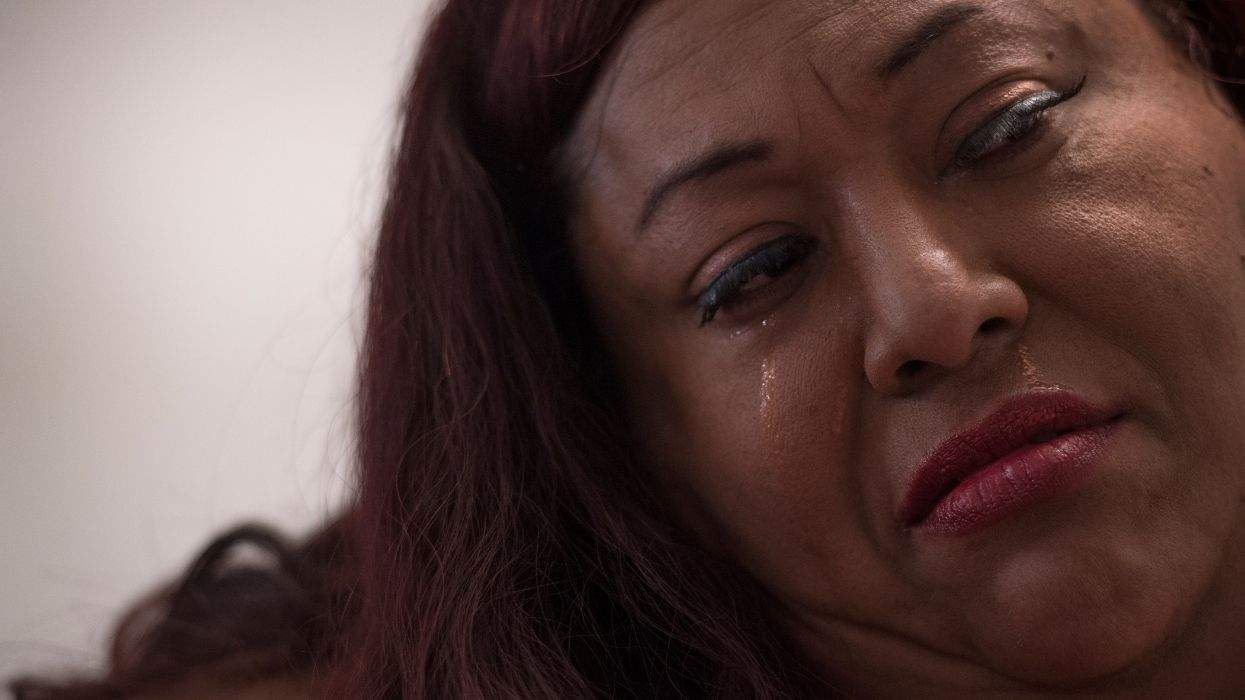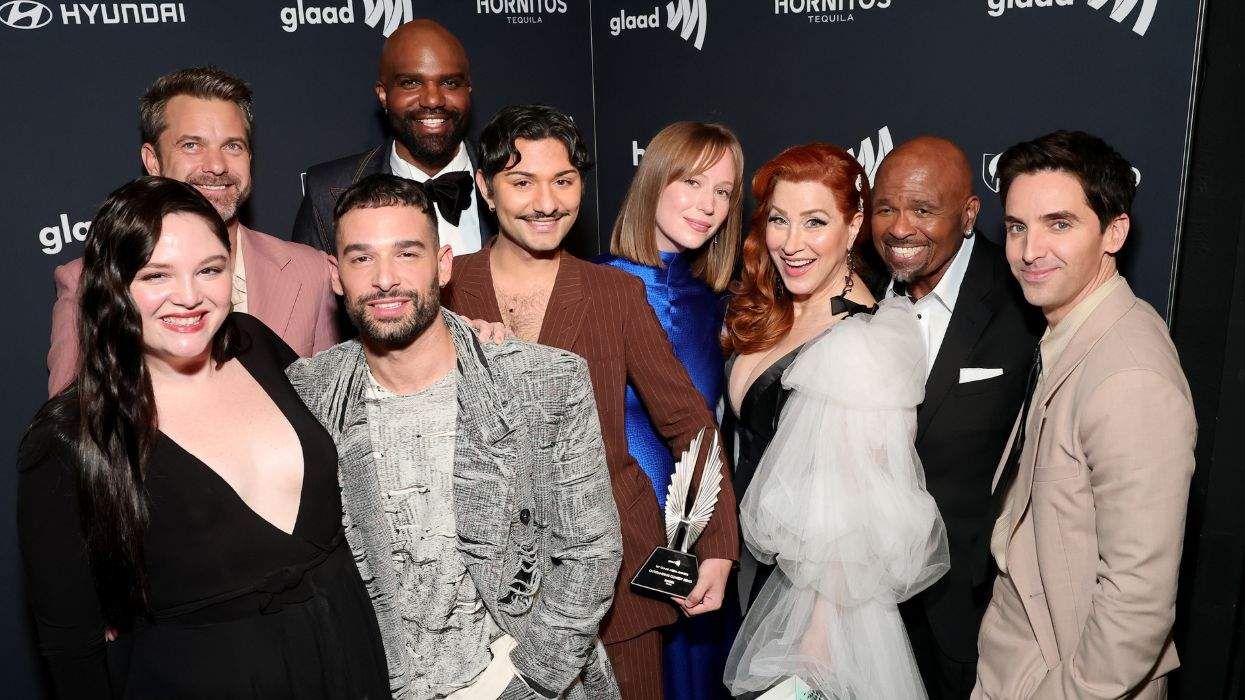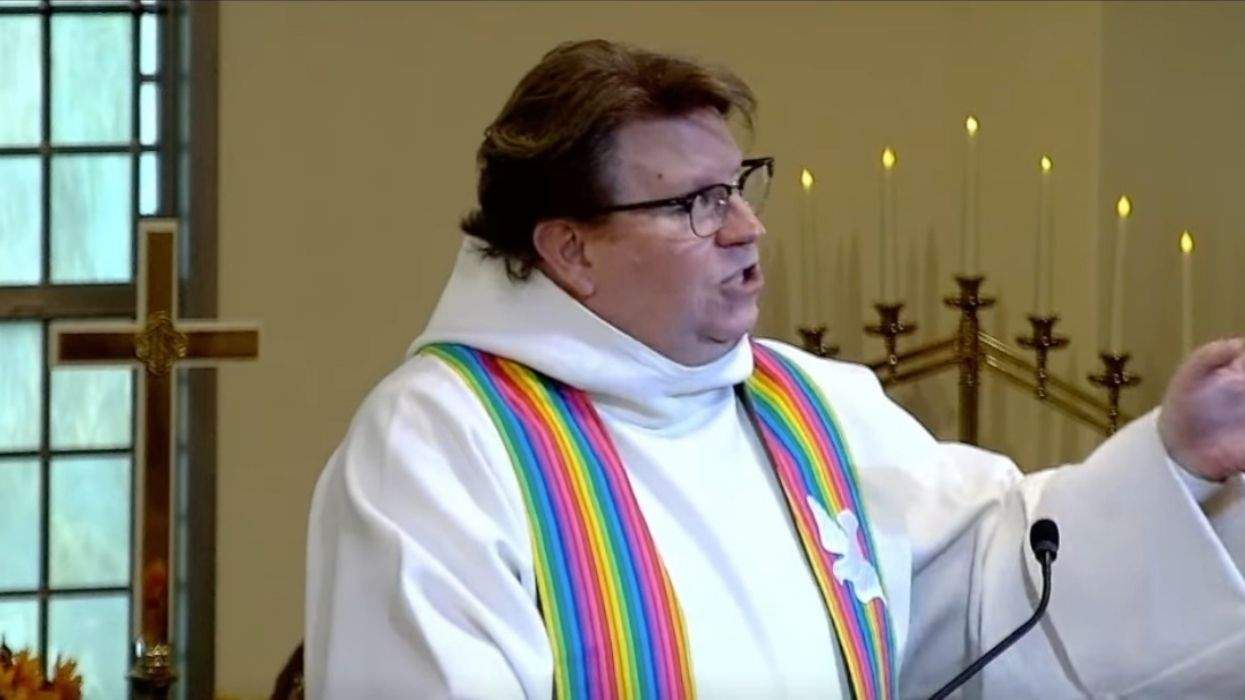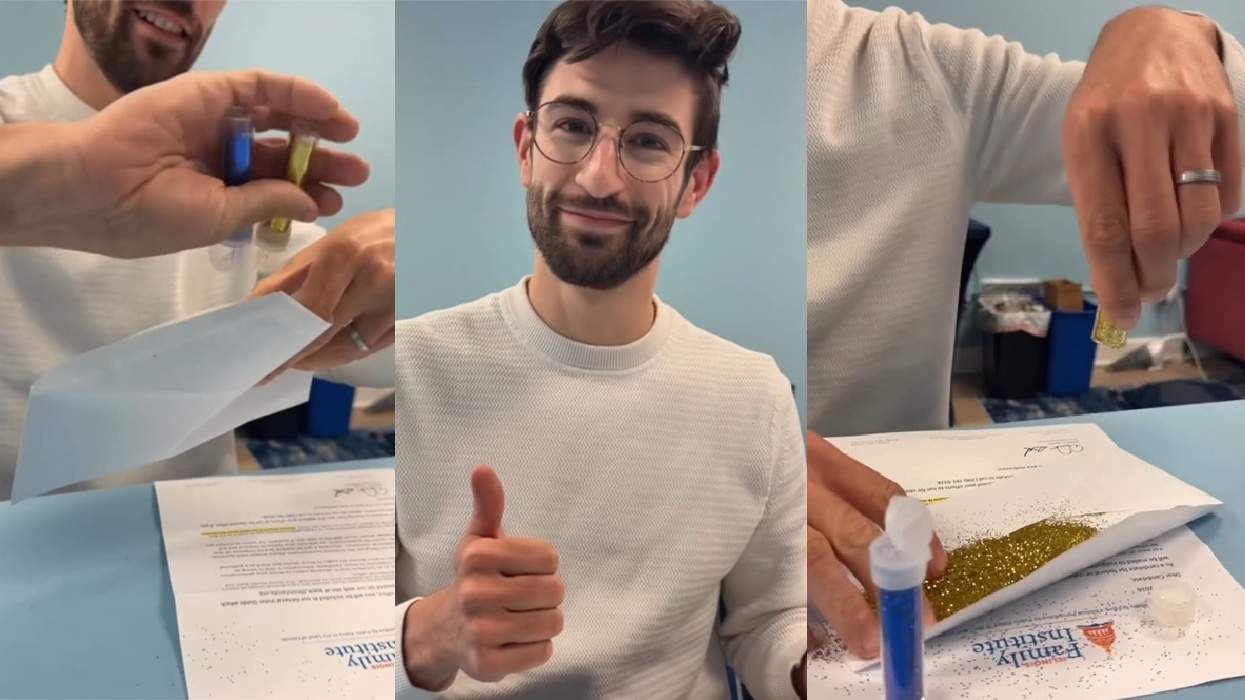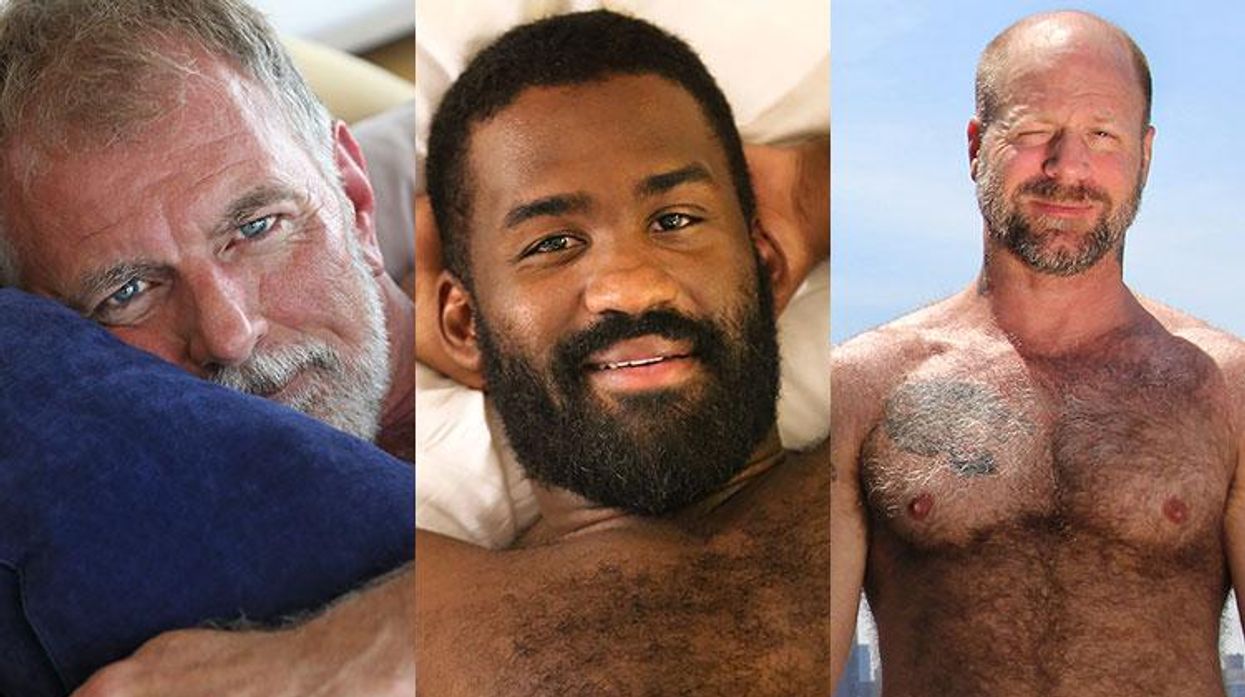Urooj Arshad's first reaction to the election of Donald Trump was an immediate, palpable sense of fear. An omnipresent dread kept her awake at night. "I wasn't sleeping well," she recalls now. "I was just having nightmares. That has gone away luckily, because... it's impossible to be in that constant state of fear."
Part of that trepidation came from a sense of deja vu: the queer-identified Muslim had first-hand experience living under an authoritative leader. "Muhammad Zia-ul-Haq (of Pakistan), whose regime I grew up under, was the dictator that really conflated Islam and the state and really wanted to strengthen the state by having a very strict definition of Islam and what it meant to be Muslim. And I think the Trump administration is doing the same thing, they are basically Christian white supremacists in office that are using this ideology to harm people. To harm LGBT communities, women, people of color."
Indeed, Arshad says, she sees a lot of similarities between the two leaders. "It's very interesting to see that these dictators, they work pretty much the same way. You might not officially call Trump a dictator, but in terms of what he's doing, it is very similar. He's using religion, he's using nationalism, you know, 'America First, Make America Great Again.' All of that rhetoric is the same that these other dictators have used to push out anyone except [their base]."
"That rhetoric absolutely affects us too," Arshad, a cofounder of the Muslim Alliance for Sexual and Gender Diversity, explains, in regard to LGBTQ Muslims. "Because we're considered the other, and a lot of times we're considered the other even within LGBT communities."
In the months since the election, Arshad admits it's been hard to keep track of all the terrible things the administration has done -- or been stopped from doing. "There's been so much back and forth, and I think that's part of the strategy is to just wear people down," Arshad says. "We saw a lot of support when the first Muslim ban was signed, people at the airports and everything, [but] it's hard to kind of carry on the momentum."
But, of course, for those who are visibly different it can be difficult to forget that they are, still, being targeted. "At this point, anything that marks you as visible -- as visibly Muslim, can endanger people," Arshad says. "So even with the hijab -- Muslim women [who wear hijabs] are at the forefront of being attacked, when you look at the patterns of violence that have been happening against Muslims since the elections."
LGBTQ Muslims, of course, aren't excluded from such attacks or the damaging anti-Muslim and anti-Islam rhetoric that's become so pervasive in our country. "There's also this sense of you're only secular if you're queer, but we have religious Muslims who are part of the LGBT community. ... They [also] feel unsafe... just being out there as Muslims."
What's more insidious, Arshad says, is that LGBT Muslims "are uniquely targeted by the Right as being victims of our own communities. [They] use us to say, 'we need to protect Americans from these terrible Muslims.' The first executive order that came out about the Muslim ban had that language in it that said, 'we'll protect Americans from these Muslims who perpetrate honor killings, who are terrible around sexual orientation.' [They use] that kind of language to really pit communities against each other."
Fortunately, Arshad says, LGBT Muslims aren't falling for that ploy. "After Orlando, Trump came out and started talking about the Muslim ban and a lot of LGBT Muslims -- most of them -- spoke up and said, 'We will not let our stories be used to... deport [others] or to have a Muslim ban or to discriminate against our own people.'"
Still, Arshad elucidates, "Muslims are seen as inherently anti-LGBT, inherently anti-women. And the narrative is so pervasive and so insidious that even people who are progressive, so to speak, have adopted that. There's a lot of times I'll tell people oh, I'm from Pakistan and they're like, 'Oh, they kill women in your country for going to school.' And I'm like, 'That is not true for everyone that is in Pakistan!' I think that narrative is just so... harmful."
"We are not accepted, a lot of times, in any of the communities we are a part of. The Muslim or the LGBT community. I've written op-eds, including one in Advocate where [people replied] 'Let's see what happens to you if you go back to Pakistan.' There's a lot of assumptions, there's a lot of tokenization. And meanwhile, the intense isolation that that brings, can literally -- you know, people can literally die. That's the real lived reality of what it means to be a community that's not seen by any of the communities that you want to be part of or that you should be able to be part of."
Arshad sees some improvements, noting, "What we're... seeing since Orlando is that there's a lot of outward-facing solidarity between the LGBT and Muslim communities." But these efforts have had their limits: "Mainstream civil rights organizations might partner with a mainstream LGBT organization and think, That's done. Like, they've done intersectionality. ... [But they] need to at least mention us... [acknowledge] that we exist. By doing that kind of outward solidarity that [suggests] LGBT and Muslim communities are distinct, they are completely erasing LGBT Muslims."
She points to this year's Creating Change conference and the opening plenary, an "amazing intersectional panel. But then the only Muslim person they had was from... a mainstream Muslim organization and this person does not identify as LGBT and never mentioned LGBT Muslims! This person mentioned Muslims in solidarity with LGBT people. And it was just really heartbreaking because a lot of us were there. A lot of LGBT Muslims were at the conference and felt so invisibilized."
Arshad currently serves as Director of International LGBTQ Youth, Health, and Rights Programs at Advocates for Youth. Although they are based in Washington, D.C., they have an international reach.
Arshad works to support organizations in the Global South that are working on LGBTI issues, particularly as they relate to youth. "Part of that is making sure that these organizations... have the capacity to do what they need to do, that they're connected to larger, regional, and global movements; and especially [that they're] centering young people. Because there's a lot of youth activism within these larger LGBTI movements, but a lot of times [youth] are not the ones that get resources or get opportunities for leadership."
For example, she points to a regional initiative in Africa, that's empowering youth "who are really wanting to center who they are within the larger Pan-Africa LGBTI movement. There's a lot of ways that young people are [presented] as proxy to advance homophobia. We're pushing back on that saying young people absolutely have agency and they deserve to be recognized and be resourced in the movements that they are already part of."
A lot of Arshad's work revolves around reproductive health, which she sees as a significant LGBT issue. "Lesbian and bisexual women -- or let's say folks who can get pregnant -- are more likely to experience an unintended pregnancy than non-LGBT [folks]," she says, explaining that queer youth aren't getting the reproductive health or sexual health information they need. "They are kind of falling through the cracks."
Arshad reflects on what Pride means for her. "I remember going to my first pride in Chicago. I went to the Dyke March and then I went to the Pride parade. And it was so exciting to see all these people come together and it was just mind-blowing to me as a young, queer person to see the possibility. And especially be able to celebrate."
Since then, she says, she's gone to numerous events around the country, including in San Francisco. "I just love that LGBT people just take over," Arshad says. But, she adds, "I also understand the critique of pride that... it's become very corporate and... [far from] recognizing Stonewall: Which was a riot, and against the police, and it was trans women of color who led it. It was a protest. I have to hold that too. As much as it's a celebration, [Pride] is also a remembrance of those amazing trans women of color."
